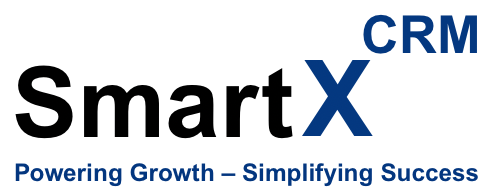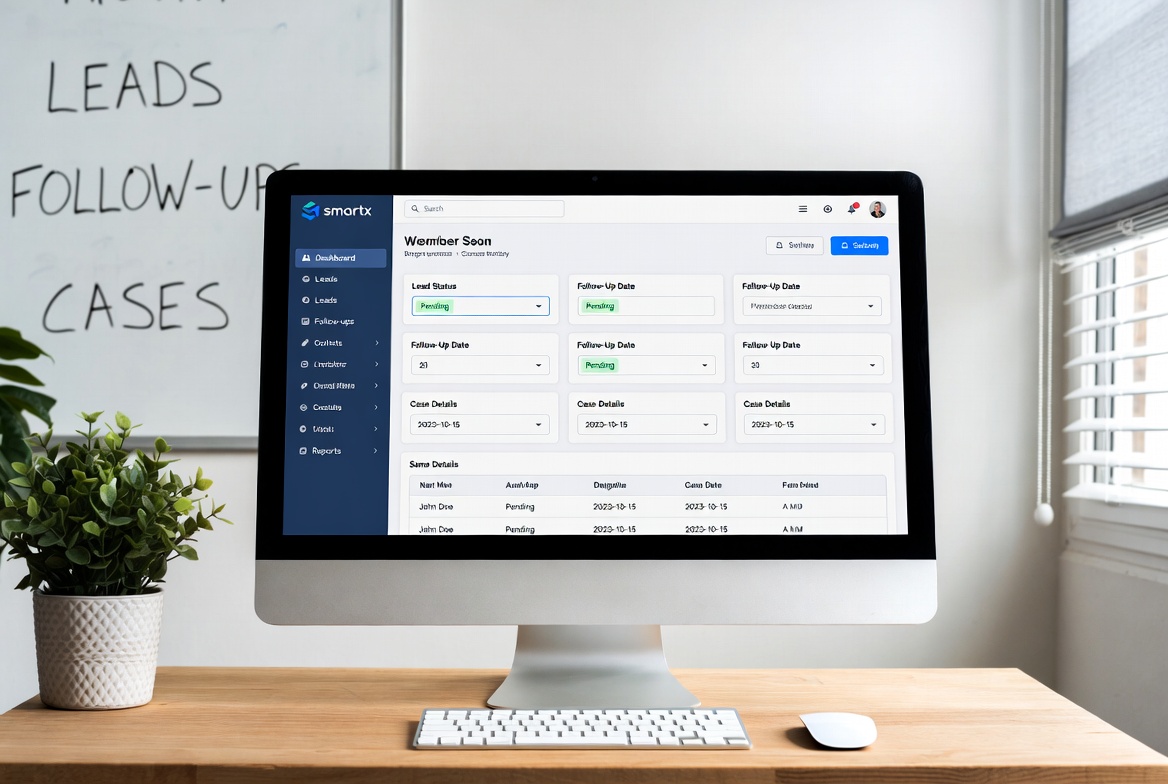Running a service-based business comes with unique challenges that require specialized solutions. Unlike product-based companies, service businesses rely heavily on building strong relationships, managing complex projects, and delivering personalized experiences. This is where choosing the best CRM for service based business becomes crucial for your success.
Whether you’re a consultant, agency owner, healthcare provider, or any other service professional, the right Customer Relationship Management (CRM) system can transform how you acquire, serve, and retain clients. In this comprehensive guide, we’ll explore everything you need to know about selecting and implementing the perfect CRM solution for your service business.
What Makes Service-Based Businesses Different?
Service-based businesses operate fundamentally differently from traditional retail or manufacturing companies. Understanding these differences is essential when evaluating CRM software for small businesses.
Key Characteristics of Service Businesses:
Relationship-Centric Operations: Service businesses thrive on personal connections and trust. Your CRM must excel at managing detailed client interactions, preferences, and communication history.
Project-Based Workflow: Most service businesses work on projects with defined timelines, deliverables, and milestones. Your CRM should seamlessly integrate project management capabilities.
Expertise-Driven Value: Service businesses sell knowledge and expertise, not physical products. This requires sophisticated lead qualification and client segmentation features.
Recurring Client Relationships: Unlike one-time product sales, service businesses often maintain long-term relationships with clients, requiring robust client lifecycle management.
Why Your Service Business Needs a Specialized CRM
Many service business owners initially try to manage client relationships using basic tools like Excel spreadsheets or generic software. However, as your business grows, these limitations become apparent. Here’s why upgrading from Excel to a proper CRM is essential:
The Cost of Poor Client Management
Without a dedicated CRM system, service businesses often struggle with:
- Lost Opportunities: Leads fall through the cracks when follow-ups aren’t systematically managed
- Inconsistent Service: Team members lack access to complete client history and preferences
- Inefficient Processes: Manual data entry and scattered information waste valuable time
- Poor Client Experience: Clients receive inconsistent communication and service quality
- Limited Growth: Scaling becomes impossible without proper systems in place
Benefits of the Right CRM Solution
A well-chosen CRM for service businesses provides:
Centralized Client Information: Every interaction, project detail, and communication is stored in one accessible location.
Automated Workflows: Routine tasks like follow-ups, invoicing, and status updates happen automatically.
Enhanced Collaboration: Team members can seamlessly collaborate on client projects with shared access to information.
Improved Client Experience: Clients receive consistent, personalized service at every touchpoint.
Data-Driven Insights: Analytics and reporting help you understand what’s working and where to improve.
Essential Features to Look for in Service Business CRM
When evaluating CRM options for your service business, certain features are non-negotiable. Here are the must-have capabilities:
1. Contact and Client Management
Your CRM should offer comprehensive contact management that goes beyond basic contact information. Look for:
- Detailed Client Profiles: Store extensive information about client preferences, project history, and communication logs
- Relationship Mapping: Track connections between different contacts within the same organization
- Custom Fields: Add industry-specific information relevant to your service type
- Interaction History: Complete timeline of all communications and touchpoints
2. Lead Management and Qualification
Effective lead management is crucial for service businesses. Your CRM should provide:
- Lead Scoring: Automatically rank prospects based on their likelihood to convert
- Custom Qualification Criteria: Set up qualification rules specific to your service offerings
- Lead Source Tracking: Understand which marketing channels generate the best prospects
- Automated Lead Assignment: Distribute leads fairly among team members
3. Project and Service Delivery Management
Since service businesses are project-centric, your CRM should include:
- Project Templates: Create standardized workflows for different service types
- Task Management: Assign and track project tasks with deadlines and dependencies
- Time Tracking: Monitor time spent on different activities for accurate billing
- Document Management: Store and share project-related documents securely
4. Communication and Collaboration Tools
Seamless communication is vital for service delivery:
- Integrated Email: Send and receive emails directly within the CRM
- Automated Communication: Set up email sequences and follow-up reminders
- Team Collaboration: Enable team members to share notes and updates
- Client Portal: Provide clients with self-service access to project information
5. Automation and Workflow Management
Automation capabilities can significantly improve efficiency:
- Workflow Automation: Automate repetitive tasks and processes
- Task and Reminder Management: Never miss important follow-ups or deadlines
- Email Marketing Automation: Nurture leads and maintain client relationships automatically
- Custom Triggers: Set up automated actions based on specific events or criteria
Top CRM Solutions for Service-Based Businesses
Let’s examine some of the leading CRM platforms and how they serve service-based businesses:
SmartxCRM: Purpose-Built for Service Excellence
SmartxCRM stands out as a comprehensive solution designed specifically with service businesses in mind. Here’s what makes it exceptional:
Advanced Lead Management: SmartxCRM’s powerful lead conversion capabilities help service businesses identify and nurture high-quality prospects more effectively.
Industry-Specific Solutions: Whether you’re in healthcare, legal services, coaching and consulting, or financial services, SmartxCRM offers tailored features for your industry.
Automation Excellence: The platform excels at automating follow-ups and streamlining repetitive tasks, allowing you to focus on service delivery.
Integrated Communication: Built-in WhatsApp automation and email marketing tools ensure consistent client communication.
Evaluating Other Popular Options
Salesforce: While powerful, Salesforce can be overwhelming and expensive for smaller service businesses. It’s better suited for large enterprises with dedicated IT resources.
HubSpot: Offers good marketing integration but may lack some project management features crucial for service delivery.
Pipedrive: Strong in sales pipeline management but limited in project tracking and service delivery features.
Zoho CRM: Provides good value but may require multiple add-ons to meet all service business needs.
Industry-Specific CRM Considerations
Different service industries have unique requirements. Here’s how to choose the best CRM for specific service sectors:
Healthcare and Wellness Services
Healthcare providers need specialized CRM features including:
- HIPAA compliance for patient data protection
- Appointment scheduling and management
- Patient communication automation
- Integration with medical practice management systems
For healthcare businesses, consider essential features specific to healthcare CRM when making your decision.
Professional Services (Legal, Consulting, Accounting)
Professional service firms require:
- Matter/case management integration
- Time tracking and billing capabilities
- Document management and version control
- Client confidentiality and security features
Home Services and Field Operations
Companies providing home services need:
- Scheduling and dispatch management
- GPS tracking and route optimization
- Mobile access for field technicians
- Photo and document capture capabilities
Creative and Marketing Agencies
Creative agencies benefit from:
- Project portfolio management
- Creative asset organization
- Client approval workflows
- Time tracking across multiple projects
Implementation Best Practices for Service Business CRM
Successfully implementing a CRM system requires careful planning and execution. Here’s your step-by-step guide:
Phase 1: Planning and Preparation
Define Your Objectives: Clearly outline what you want to achieve with your CRM implementation. Common goals include:
- Improving lead conversion rates
- Enhancing client satisfaction
- Increasing team productivity
- Better project management
Audit Current Processes: Document your existing workflows, identify pain points, and determine what needs improvement.
Data Cleanup: Before migration, clean up your existing client data to ensure accuracy and consistency.
Phase 2: System Setup and Customization
Configure User Permissions: Set up role-based access to ensure team members see only relevant information.
Customize Fields and Workflows: Tailor the CRM to match your specific business processes and terminology.
Import Data: Carefully migrate your existing client and prospect data into the new system.
Set Up Integrations: Connect your CRM with other essential tools like email, calendar, and accounting software.
Phase 3: Team Training and Adoption
Comprehensive Training: Ensure all team members understand how to use the CRM effectively.
Create Documentation: Develop internal guides and procedures for CRM usage.
Gradual Rollout: Consider implementing the CRM in phases to minimize disruption.
Monitor Adoption: Track usage metrics and provide additional support where needed.
Phase 4: Optimization and Continuous Improvement
Regular Reviews: Conduct monthly reviews to assess CRM performance and user satisfaction.
Process Refinement: Continuously improve workflows based on user feedback and performance data.
Advanced Features: Gradually implement more sophisticated features as your team becomes comfortable with the basics.
Measuring CRM Success in Service Businesses
To ensure your CRM investment delivers results, track these key performance indicators:
Client-Focused Metrics
Client Retention Rate: Measure how well your CRM helps maintain long-term client relationships.
Client Satisfaction Scores: Monitor client feedback and satisfaction levels.
Average Project Value: Track whether better client management leads to higher-value engagements.
Client Lifetime Value: Measure the total value of long-term client relationships.
Operational Efficiency Metrics
Lead Conversion Rate: Monitor how effectively your CRM helps convert prospects into clients.
Sales Cycle Length: Track whether your CRM reduces the time from initial contact to project start.
Team Productivity: Measure time saved through automation and improved processes.
Response Time: Monitor how quickly your team responds to client inquiries.
Business Growth Indicators
Revenue Growth: Track overall business growth attributable to CRM implementation.
New Client Acquisition: Measure the rate of new client acquisition.
Referral Rate: Monitor whether improved client management increases referrals.
Project Completion Time: Track whether CRM improves project delivery efficiency.
Common Pitfalls to Avoid
Learning from others’ mistakes can save you time and resources:
Over-Customization
While customization is important, avoid making too many modifications initially. Start with standard features and customize gradually based on actual usage patterns.
Insufficient Training
Poor training is the leading cause of CRM failure. Invest adequately in comprehensive user training and ongoing support.
Choosing Based on Price Alone
The cheapest option often becomes the most expensive due to limitations, integration costs, and poor adoption rates.
Ignoring Mobile Needs
In today’s mobile-first world, ensure your CRM provides robust mobile functionality for field workers and remote team members.
Poor Data Quality
A CRM is only as good as the data it contains. Establish data quality standards and regular cleanup procedures.
Future-Proofing Your CRM Investment
Technology evolves rapidly, so choose a CRM that can grow with your business:
Scalability Considerations
User Scaling: Ensure the CRM can accommodate team growth without performance degradation.
Feature Expansion: Choose a platform that offers advanced features you can grow into.
Integration Capabilities: Select a CRM with robust API capabilities for future integrations.
Emerging Technologies
Artificial Intelligence: Look for CRMs incorporating AI for lead scoring, predictive analytics, and automation.
Mobile-First Design: Ensure your CRM is optimized for mobile usage as remote work continues to grow.
Advanced Analytics: Choose platforms offering sophisticated reporting and business intelligence capabilities.
Making the Final Decision
Selecting the best CRM for your service business requires careful consideration of multiple factors:
Evaluation Criteria Checklist
Functionality Match: Does the CRM meet your specific service business needs?
Ease of Use: Will your team actually use the system consistently?
Integration Capabilities: Does it work well with your existing tools?
Scalability: Can it grow with your business?
Support Quality: Does the vendor provide adequate training and support?
Total Cost of Ownership: Consider setup, training, and ongoing costs.
Trial and Testing
Most reputable CRM providers offer free trials. Use this opportunity to:
- Test core functionality with real data
- Evaluate user interface and ease of use
- Assess integration capabilities
- Gauge team acceptance and adoption potential
Conclusion: Transforming Your Service Business with the Right CRM
Choosing the best CRM for service based business is one of the most important technology decisions you’ll make. The right system transforms how you acquire clients, deliver services, and build lasting relationships.
SmartxCRM offers service businesses a comprehensive solution designed specifically for their unique needs. From advanced lead management to industry-specific features, SmartxCRM helps service businesses improve their customer journey and drive sustainable growth.
Remember, implementing a CRM is not just about technology—it’s about transforming your business processes to better serve your clients and grow your business. Take time to evaluate your options carefully, involve your team in the decision-making process, and choose a solution that aligns with your long-term business goals.
The investment in the right CRM system will pay dividends in improved efficiency, better client relationships, and sustainable business growth. Start your CRM journey today and transform your service business into a well-oiled, client-focused operation that stands out in today’s competitive marketplace.
Whether you’re just starting out or looking to upgrade your existing system, the key is to choose a CRM that understands the unique challenges and opportunities of service-based businesses. With the right system in place, you’ll be well-equipped to deliver exceptional service while building a thriving, sustainable business.
Ready to transform your service business with the right CRM? Explore SmartxCRM’s industry-specific solutions and discover how the right CRM can revolutionize your client relationships and business growth.





Leave a comment: